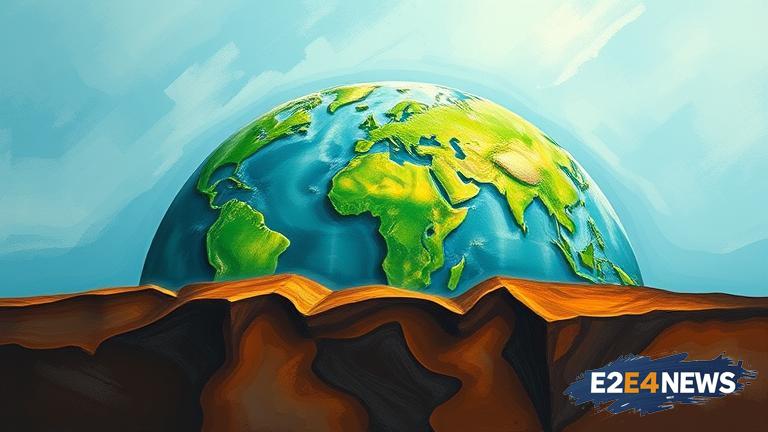Climate change is a complex and multifaceted issue that has been at the forefront of global discussions in recent years. It refers to the long-term warming of the planet, which is primarily caused by the increasing levels of greenhouse gases in the Earth’s atmosphere. These gases, such as carbon dioxide and methane, trap heat from the sun and prevent it from being released back into space, leading to a rise in global temperatures. The main cause of climate change is human activity, particularly the burning of fossil fuels, deforestation, and land-use changes. The effects of climate change are far-reaching and varied, ranging from rising sea levels and more frequent natural disasters to changes in weather patterns and loss of biodiversity. One of the most significant impacts of climate change is the increase in extreme weather events, such as heatwaves, droughts, and heavy rainfall. These events can have devastating consequences, including loss of life, damage to infrastructure, and displacement of communities. Climate change also has significant implications for global food security, as changing weather patterns and rising temperatures can lead to crop failures and reduced yields. Furthermore, climate change is having a profound impact on the world’s oceans, with rising sea levels and ocean acidification threatening the health and productivity of marine ecosystems. The consequences of climate change are not limited to the environment, as it also has significant social and economic implications. Climate change is projected to lead to significant economic losses, particularly in industries such as agriculture, forestry, and tourism. It also has the potential to exacerbate social inequalities, as the poorest and most vulnerable communities are often the most affected by climate-related disasters. Despite the challenges posed by climate change, there are many potential solutions that can help to mitigate its effects. One of the most effective ways to address climate change is to reduce greenhouse gas emissions, particularly through the transition to renewable energy sources and the improvement of energy efficiency. Additionally, efforts to protect and restore natural ecosystems, such as forests and wetlands, can help to sequester carbon dioxide and reduce the impacts of climate change. Climate change is a global issue, and it requires a global response. International cooperation and agreement are essential for addressing the causes and effects of climate change, and for developing effective solutions. The Paris Agreement, which was signed in 2015, is a significant step towards global cooperation on climate change, as it brings together almost 200 countries in a commitment to limit global warming to well below 2 degrees Celsius. However, more needs to be done to address the scale and urgency of the climate crisis. Individuals, communities, and governments must work together to reduce greenhouse gas emissions, protect natural ecosystems, and support those who are most vulnerable to the impacts of climate change. By taking action on climate change, we can help to create a more sustainable and equitable future for all. The science is clear, the consequences are real, and the time for action is now. Climate change is not just an environmental issue, but a human rights issue, and it requires a comprehensive and inclusive response. The fight against climate change is a fight for the future of our planet, and it is a fight that we must win. The clock is ticking, and the world must come together to address the climate crisis before it’s too late. The good news is that there are many reasons to be optimistic about the future, as renewable energy costs are decreasing, and more countries are committing to reduce their greenhouse gas emissions. Moreover, climate change is a global issue that requires a global response, and there are many international initiatives and agreements that aim to address the climate crisis. The bad news is that the window for action is rapidly closing, and the world must take immediate and drastic action to reduce greenhouse gas emissions and transition to a low-carbon economy. In conclusion, climate change is a pressing global issue that requires immediate attention and action. It is a complex and multifaceted issue, but there are many potential solutions that can help to mitigate its effects. By working together, we can create a more sustainable and equitable future for all, and ensure that the world is able to adapt to the challenges posed by climate change.
